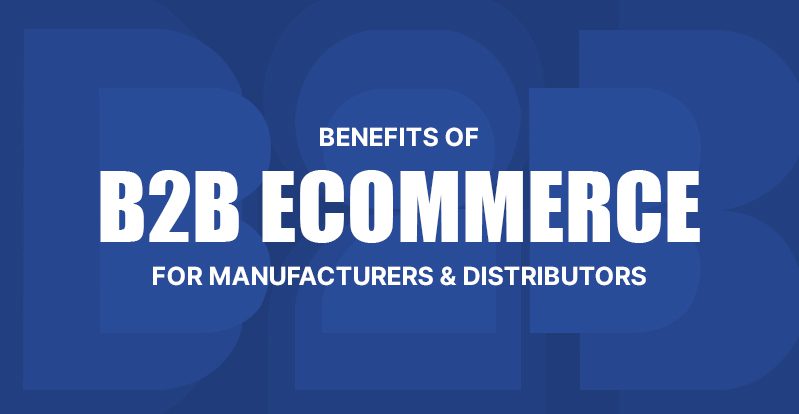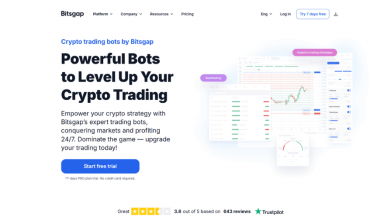5 Ways B2B eCommerce Can Reduce Operational Costs and Drive Enterprise Growth

Operational inefficiencies are a constant challenge for B2B enterprises. Managing complex order flows, manual approvals, customer-specific pricing, and disconnected systems often leads to rising costs and reduced agility.
B2B eCommerce is changing that.
By digitizing core processes and centralizing business operations, B2B eCommerce enables companies to reduce overhead, eliminate repetitive manual tasks, and streamline the entire sales cycle. From order management to inventory control, automation not only cuts costs but also frees up resources that can be reinvested into growth.
In this article, we’ll look at five practical ways B2B eCommerce directly reduces operational expenses — and how those savings translate into scalable enterprise growth.
1. Order Management Automation
Processing high volumes of B2B orders manually can slow down fulfillment, introduce costly errors, and tie up internal resources. A B2B eCommerce platform automates every step of the order lifecycle — from capturing custom pricing and bulk quantities to confirming shipping and invoicing.
By removing manual touchpoints, businesses speed up delivery, reduce processing costs, and minimize mistakes that often require expensive corrections. The result is a smoother workflow that saves both time and money.
2. Customer Self-Service Capabilities
B2B buyers increasingly expect the same convenience they get from B2C platforms. With built-in self-service features, customers can log in to manage their accounts, browse products, place repeat orders, download invoices, or check order statuses — all without involving your staff.
This not only improves the buying experience but also reduces the workload for sales and support teams. Over time, self-service functionality helps lower customer service costs while improving accuracy and customer retention.
3. Inventory and Supply Chain Efficiency
Inventory-related issues are a major source of operational waste. Overstocking ties up capital and storage space, while understocking results in missed sales and delayed deliveries. B2B eCommerce platforms give businesses real-time insights into inventory levels, supplier timelines, and order trends.
By integrating eCommerce with inventory and supply chain systems, businesses can make faster, data-driven decisions that reduce holding costs and improve order accuracy — leading to leaner operations and lower expenses.
4. Unified Digital Operations
Many B2B organizations operate with disconnected tools and data silos — one system for sales, another for inventory, and yet another for customer data. This fragmentation creates duplication, slows down processes, and drives up overhead.
A unified B2B eCommerce platform centralizes these functions into a single interface. Teams gain access to consistent data, streamlined workflows, and better collaboration across departments. This centralized approach reduces system-related costs and creates a more scalable foundation for growth.
Partnering with a B2B eCommerce development agency can help ensure your platform is designed to support these unified digital operations from the ground up.
5. Data-Driven Process Optimization
Without centralized analytics, it’s difficult for B2B companies to identify inefficiencies or opportunities for improvement. A modern eCommerce platform offers built-in reporting and data tools that track order trends, customer behavior, and operational performance.
By leveraging these insights, businesses can refine processes, improve forecasting, and make smarter decisions. Over time, data-driven improvements reduce waste, improve resource allocation, and help prioritize the initiatives that drive the most value.
Final Thoughts
Operational efficiency isn’t just about cutting costs — it’s about building a foundation for growth. For B2B enterprises, the shift to eCommerce isn’t a trend; it’s a strategic response to long-standing challenges like manual order processing, siloed systems, and limited visibility into operations.
When implemented effectively, a B2B eCommerce platform becomes much more than a sales channel. It simplifies complex workflows, empowers customers through self-service, improves inventory control, and unifies operations under one digital ecosystem. These improvements don’t just lower expenses — they free up internal resources, reduce friction, and allow businesses to scale with confidence.
Of course, realizing these benefits depends on choosing the right technology and executing with precision. That’s why many enterprises choose to work with a trusted b2b ecommerce development agency — to ensure their platform is tailored to meet real business goals and deliver measurable impact.
By aligning digital strategy with operational needs, B2B businesses can transform cost centers into growth drivers — and turn eCommerce into a long-term competitive advantage.





